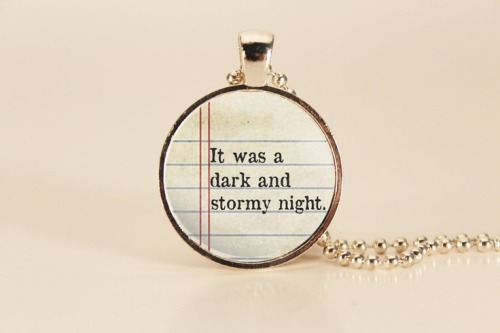The Crossroads of Literature and Film: Appointing a Bollywood Defense Attorney
It's Milestone Week--and I am thinking about Bollywood on both a macro and micro level--switching back and forth from a bird's eye view to a heart's eye view and then back again.
I spent last Saturday night introducing a group of Bollywood virgins to the experience that is Devdas (2002). As much as I like the film, I itched to show something closer to my own heart (read: something from the '70s). The choice came down to a couple of rather cold factors--what DVD's I owned that (A) were recent, (B) of comparable production quality to Hollywood, and (C) were films I was capable of being objective towards during a public viewing (which crosses out things like Fanaa). Luckily, everyone enjoyed themselves, and I didn't have to vigorously defend any sacred ground.
Still, today I wonder, if I had to ask one traditionally western artist, perhaps even a respected literary figure (read: author) to both defend Bollywood to it's detractors and to persuade those who are on the fence about its charms, who would I pick? For me, it's got to be an author I know well, even intimately. Otherwise, how would I trust he/she to do the job right? This author also needs to be able to argue passionately for the continued use of fantasy--for stories that weave mythic and folktale elements together in new ways. Also, for the sake of not putting words in any living person's mouth, I think these figures all need to be dead (conveniently without ability to comment or take insult).
Here are a few of my top contenders. . .
It seems like a natural choice to pick such a giant, but ultimately, Shakespeare is too popular, and too British, and most importantly--too prolific to be useful. If he were alive today, he would be so busy marketing his many products that he wouldn't have time to take up a barrister gig on the side.
Madeleine L'Engle is plenty OUT THERE in terms of her own storylines, but I also have sneaking suspicion that she would prefer the theatre over film as a medium any day. However, she did have a remarkable way of balancing a love of science with a healthy skepticism towards skepticism itself.
Frances Hodgson Burnett might jump at the chance to defend an Indian, well, anything. But her discourse would probably reek of Orientalism (of a worshipful sort):
. . . and she would step on more than a few toes with her blatant generalizations about Indian society. Still she knew how to describe the power of Story--Story uninhibited by realism or cynicism or political fads.
Yet no one, not even the great fantasy writers (E. Nesbit, Tolkien, etc. etc.) can outmatch L.M. Montgomery in sheer appreciation of fantasy--albeit from the her stance at the edge of Fantasy's borders. Speaking of one of Montgomery's well-known characters, Madeleine L'Engle said:
I spent last Saturday night introducing a group of Bollywood virgins to the experience that is Devdas (2002). As much as I like the film, I itched to show something closer to my own heart (read: something from the '70s). The choice came down to a couple of rather cold factors--what DVD's I owned that (A) were recent, (B) of comparable production quality to Hollywood, and (C) were films I was capable of being objective towards during a public viewing (which crosses out things like Fanaa). Luckily, everyone enjoyed themselves, and I didn't have to vigorously defend any sacred ground.
Still, today I wonder, if I had to ask one traditionally western artist, perhaps even a respected literary figure (read: author) to both defend Bollywood to it's detractors and to persuade those who are on the fence about its charms, who would I pick? For me, it's got to be an author I know well, even intimately. Otherwise, how would I trust he/she to do the job right? This author also needs to be able to argue passionately for the continued use of fantasy--for stories that weave mythic and folktale elements together in new ways. Also, for the sake of not putting words in any living person's mouth, I think these figures all need to be dead (conveniently without ability to comment or take insult).
Here are a few of my top contenders. . .
Shakespeare
 |
| Via Hipster Shakespeare. |
It seems like a natural choice to pick such a giant, but ultimately, Shakespeare is too popular, and too British, and most importantly--too prolific to be useful. If he were alive today, he would be so busy marketing his many products that he wouldn't have time to take up a barrister gig on the side.
"The man that hath no music in himself, nor is moved with concord of sweet sounds, is fit for treasons, strategems, and spoils; the motions of his spirit are dull as night, and his affections as dark as Erabus. Let no such man be trusted. Mark the music."
~William Shakespeare (Merchant of Venice: Act 5, Scene 1)
L'Engle
 |
| Via Bibliophile Files |
"Don't try to comprehend with your mind. Your minds are very limited. Use your intuition."
(A Wrinkle in Time)
Frances Hodgson Burnett
 |
| Ethel Franklin Bett's illustration of A Little Princess |
“It will be like a story from the Arabian Nights,” he said. “Only an Oriental could have planned it. It does not belong to London fogs.”
(A Little Princess)
"When I am telling it, it doesn't seem as if it was only made up. It seems more real than you are, more real than the schoolroom. I feel as if I were all the people in the story--one after the other. It is queer." (ALP).
L.M. Montgomery
 |
| The side of Prince Edward Island I recognize via Hopeless Wanderer |
Yet no one, not even the great fantasy writers (E. Nesbit, Tolkien, etc. etc.) can outmatch L.M. Montgomery in sheer appreciation of fantasy--albeit from the her stance at the edge of Fantasy's borders. Speaking of one of Montgomery's well-known characters, Madeleine L'Engle said:
"The books I read most as a child were by Lucy Maud Montgomery, who's best known for her Anne of Green Gables stories, but I also liked Emily of New Moon . . . She had a hard time in school, and she also understood that there's more to life than just the things that can be explained by encyclopedias and facts. Facts alone are not adequate. I loved Emily."
Montgomery championed Story and Magic and Feelings uninhibited by Reason . . .
“Don't be led away by those howls about realism. Remember-pine woods are just as real as pigsties and a darn sight pleasanter to be in.”
(Emily of New Moon)
. . . Yet her books taste strongly of an older conservative age . . . as shows strongly in the fondly penned dialogues of secondary characters . . .
“But it ain't our feelings we have to steer by through life--no, no, we'd make shipwreck mighty often if we did that. There's only the one safe compass and we've got to set our course by that--what it's right to do.”
(Anne of Avonlea)
But of course she was writing in the early 1900s through the 1920's in a conservative region of the world (the East coast of Canada) . . . burdened and bordered (and inspired by) all the intricacies of the etiquette and customs of rural North America and the leftover mores of the late Victorian era .
“No one can be free who has a thousand ancestors.”
(Emily Climbs)
Does this combination of excess and restriction seem familiar to you? Do you think of something in particular when you hear Romance and Rules married in such a fashion?
 |
| Aap Ki Kasam (1974) |
Ok, I'll accept Jane Austen or Regency fiction as an answer.
But mostly, I see the average Filmi Story . . . and I see it as a gem created by an internal fire of myth and song . . . and shaped by the outward pressure of society's expectations.
 |
| Awaara (1950). |
 |
| Parasmani (1963) |
 |
| Muqaddar ka Sikandar (1978) |
The most telling proof of Montgomery's potential as a Bollywood Barrister is her ability, shown over and over again in her semi-autobiographical Emily novels, to champion creative identity in the face of criticism.
“Well, it all comes to this; there's no use trying to live in other people's opinions. The only thing to do is to live in your own. After all, I believe in myself. I'm not so bad and silly as they think me, and I'm not consumptive, and I can write. Now that I've written it all out I feel differently about it. The only thing that still aggravates me is that Miss Potter pitied me -- pitied by a Potter!”
(Emily Climbs)
If I had to pick one person in all of space and time to come and defend a highly emotive, symbol-driven, moralistic, and "irrational" artform . . . it would be Montgomery.
Because Hindi films should NEVER be pitied for what they do best.




Comments
Post a Comment